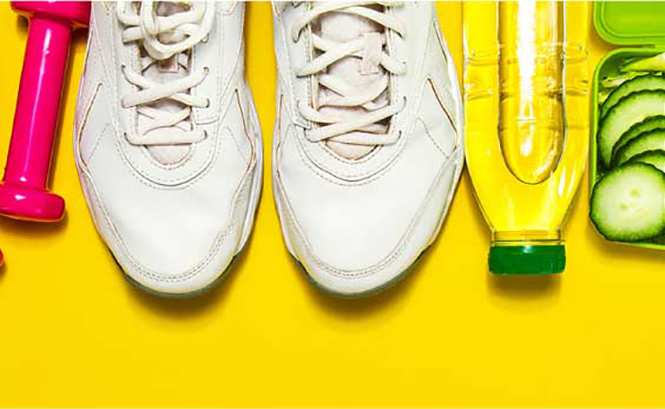
A third of cancers can be prevented with simple lifestyle changes.
1. Eat a healthy diet
Being overweight or obese increases your risk of 13 cancers. That’s why it’s important to eat at least five serves of vegetables and two serves of fruit each day and limit processed foods and added sugar.
What is a serve?
Serving sizes vary for different types of fruit and vegetables and are shown below:
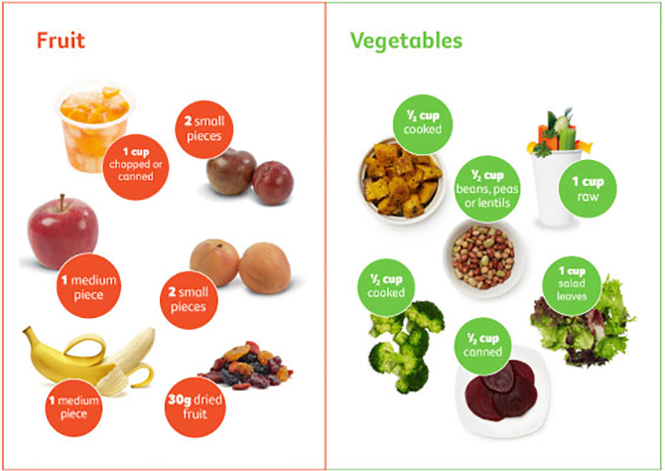
How much sugar is too much?
To check the sugar in the products you buy compare the numbers in the Average Quantity per 100g column on the pack with our guidelines.
BEST - Less than 5g OKAY - 5-15 g POOR - More than 15g
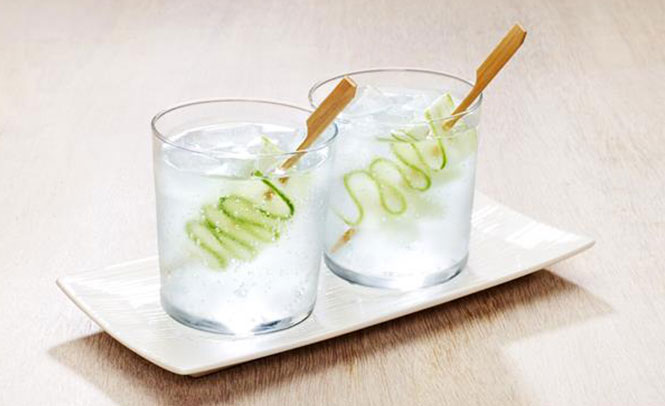
2. Limit alcohol
If you choose to drink, aim for no more than two standard alcoholic drinks on any day. More than this increases your lifetime risk of harm from alcohol-related disease or injury (such as stroke, some cancers, and heart disease).
Handy tips to reduce alcohol
- Sip slowly.
- Alternate alcoholic drinks with non-alcoholic ones.
- Eat when you drink alcohol.
- Dilute alcohol; for example, white wine and mineral water.
- Choose a low-alcohol (or no-alcohol) beer or wine.
- Offer to be the designated driver when you go out.
- Have at least 1 or 2 alcohol-free days each week.
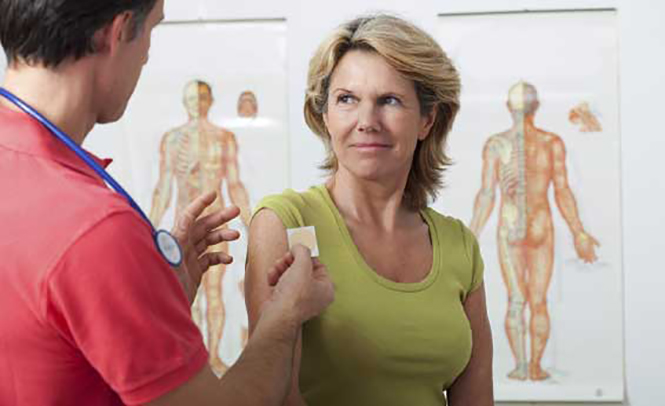
3. Quit smoking
We all know smoking causes lung cancer, but did you know it also causes cancer of the bladder, mouth, ovary, pancreas, stomach, bowel and much, much more?
It’s never too late to quit. Even long-term smokers who quit can reduce their chance of getting cancer.
Within one week of quitting, the lungs’ natural cleaning system starts to recover, becoming better at removing mucous, tar and dust from the lungs.
If you need help call the Quitline on 13 78 48.
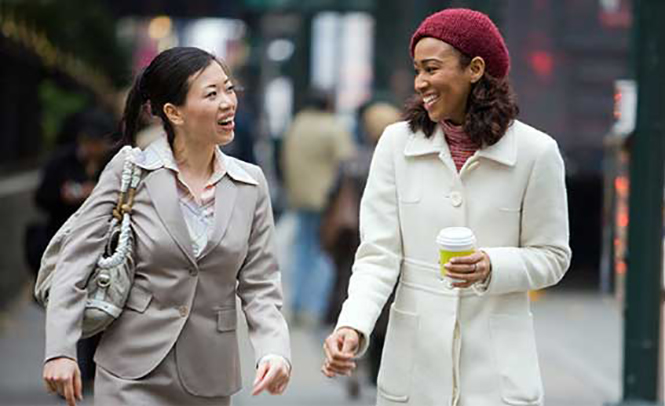
4. Get active
One hour of moderate activity daily or 30 minutes of vigorous activity is recommended.
How to stay active every day
- See exercise as an opportunity, not an inconvenience.
- Walk instead of driving to the shops, and walk during your lunch break.
- Walk or cycle to work, take the stairs.
- Get off the train or bus one stop earlier and walk the rest of the way.
- Do vigorous housework like vacuuming or gardening.
- Get up and talk to colleagues instead of sending an email.
- Use a pedometer to count your steps. Work towards a goal of 10,000 steps per day.
Track your exercise intensity with the Talk Test
|
Talk level
|
Exercise Intensity
|
|
You can talk and sing easily, without running out of breath.
|
Low intensity
|
|
You can maintain a conversation comfortably, but unable to sing any more than a few words without running out of breath.
|
Moderate intensity
|
|
You can’t say any more than a few words without having to pause to breathe.
|
Vigorous intensity
|

5. Be SunSmart
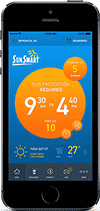 Australia has one of the highest rates of skin cancer in the world. Two in three of us will be diagnosed with some form of skin cancer by the age of 70.
Australia has one of the highest rates of skin cancer in the world. Two in three of us will be diagnosed with some form of skin cancer by the age of 70.
Protect yourself by using all five SunSmart steps.
- SLIP on covering clothing
- SLOP on SPF30 (or higher) broad-spectrum, water-resistant sunscreen at least 20 minutes before going outdoors and re-apply every two hours
- SLAP on a broad-brimmed hat to protect your face, head, neck and ears
- SEEK shade
- SLIDE on sunglasses.
For sun protection times, download the free SunSmart app to your mobile.
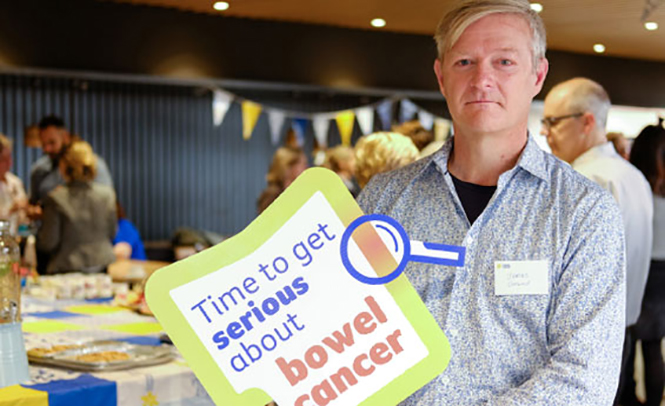
6. Get screened
Cancer screening tests look for the early signs of cancer before it has developed or before any symptoms emerge. Treatment can be more effective when cancer is found early.
The Australian government runs screening programs for breast, bowel, and cervical cancer. Visit Get checked to learn more about early detection and screening.
Bowel cancer claims the lives of more than 1,300 people each year. Yet, if found early, 90% of bowel cancers can be treated.
7. When in doubt, see your doctor
Be vigilant and make checking yourself part of your regular routine. Understand what is normal for you and see your doctor if you notice any unusual change.
These signs don’t necessarily mean you have cancer, but it’s important to have them checked out just in case. Early detection is the best defence against cancer.
Find out more about cancer prevention or call our experienced cancer nurses on 13 11 20.